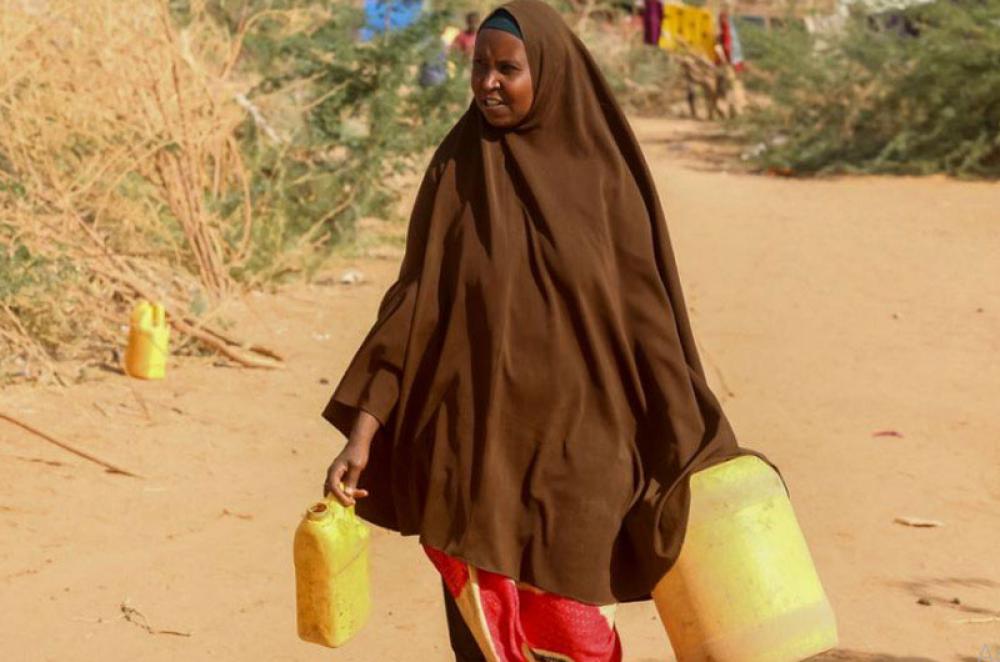Just Earth News | @justearthnews | 16 Feb 2022, 12:54 am Print
 Somalia
Somalia Image: UNICEF/Ismail Taxta
New York: Somalia’s leaders must put aside their differences and urgently conclude a credible election process, the UN’s senior official in the country told the Security Council on Tuesday, noting that national elections are now more than a year behind schedule and women’s representation remains significantly off-track.
James Swan, the Secretary-General’s Special Representative and Head of the UN Assistance Mission in Somalia (UNSOM), briefed ambassadors on recent political developments – including the conclusion of Upper House of Parliament elections, and the ongoing House of the People election – as well as increasing attacks by the Al-Shabaab militant group and a deepening humanitarian crisis triggered by one of the region’s worst droughts in decades.
Critical election
The Special Representative said that, since his last briefing in November 2021, election plans – first agreed earlier that year – have progressed considerably.
“While this is a welcome development, this pace needs to be further accelerated,” he said, noting that only 130 of 275 seats of the House of the People have been filled to date.
Pointing out that 23 of those seats have so far gone to women, about 22 per cent of the total, he said that number fell well short of the 30 per cent agreed women’s quota for the country’s political leaders, and urged all actors to redouble their efforts to meet that target.
While political tensions among some Somali leaders continue to flare up sporadically – largely the result of “posturing and brinkmanship” – he reported that they have so far been quickly contained.
“Yet, a real risk remains that a miscalculation could lead these tensions to spill over into conflict,” he warned.
Militant attacks
In the security arena, the Al-Shabaab militant group continues to pose a major security threat to Somalia, with Banadir region and South West states, serving as its centre of operations.
Recent months have also seen an increase in the use of improvised explosive devices and rising numbers of attacks in the capital, Mogadishu, with civilian casualties.
Noting that the future configuration of the African Union Mission in Somalia, known as AMISOM, is currently under review, Mr. Swan said the UN is engaged in discussions with the Federal Government of Somalia, the African Union and key donors, on various technical aspects of its future mandate and configuration.
Progress has also been registered in implementing the Somali Transition Plan, which is key both for the Mission’s reconfiguration and for determining how quickly it will transfer responsibilities to the Somali security forces.
‘Extremely dire’ humanitarian outlook
Meanwhile, Somalia and the wider Horn of Africa region is facing one of the most severe droughts in decades.
Mr. Swan warned the Council that some 7.7 million Somalis require humanitarian assistance this year, with 4.3 million impacted by drought and more than 270,000 displaced.
According to the recently released Somalia Food Security and Nutrition Assessment, published by the UN Food and Agriculture Organization (FAO), more than 1.4 million children in Somalia – nearly half of the country’s under-five population – are likely to suffer from acute malnutrition due to the ongoing drought.
A critical shortage of water has forced families to migrate to urban and peri-urban centres, adding to the 2.9 million people who were already displaced by conflict and climate change. Since November 2021, water prices in some of the worst-affected areas have risen by as much as 72 per cent.
Warning the Council that the UN Humanitarian Response Plan for Somalia currently stands at only 2 per cent funded, the Special Representative reiterated his call on donors to increase their support.
- Ali Khamenei (1939–2026): Iran’s Supreme Leader who ruled with an iron grip
- Trump signs 10% global tariff, says it takes effect ‘almost immediately’
- BJP wins a seat in Bangladesh — But not the one you think!
- Meet Shabana Mahmood: Could she take over as UK’s first Pakistani-origin Muslim PM?
- Dalai Lama's Office breaks silence on Epstein claims





-1763561110.jpg)
